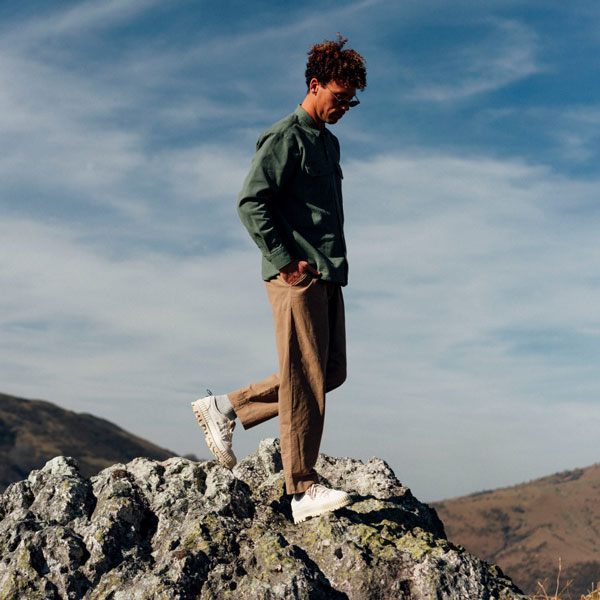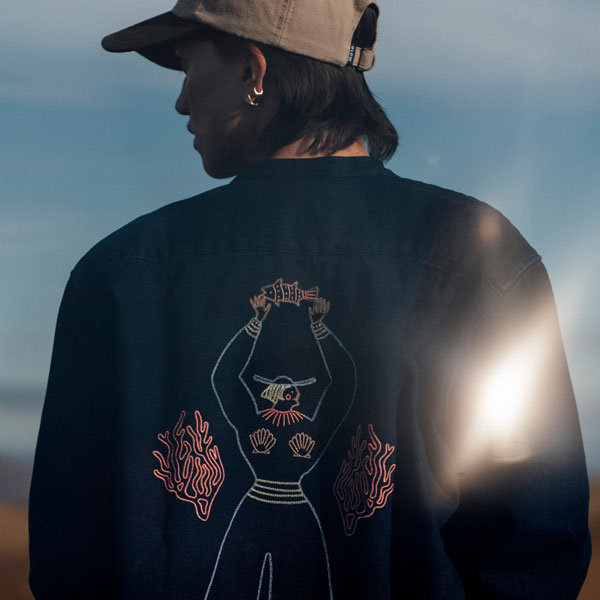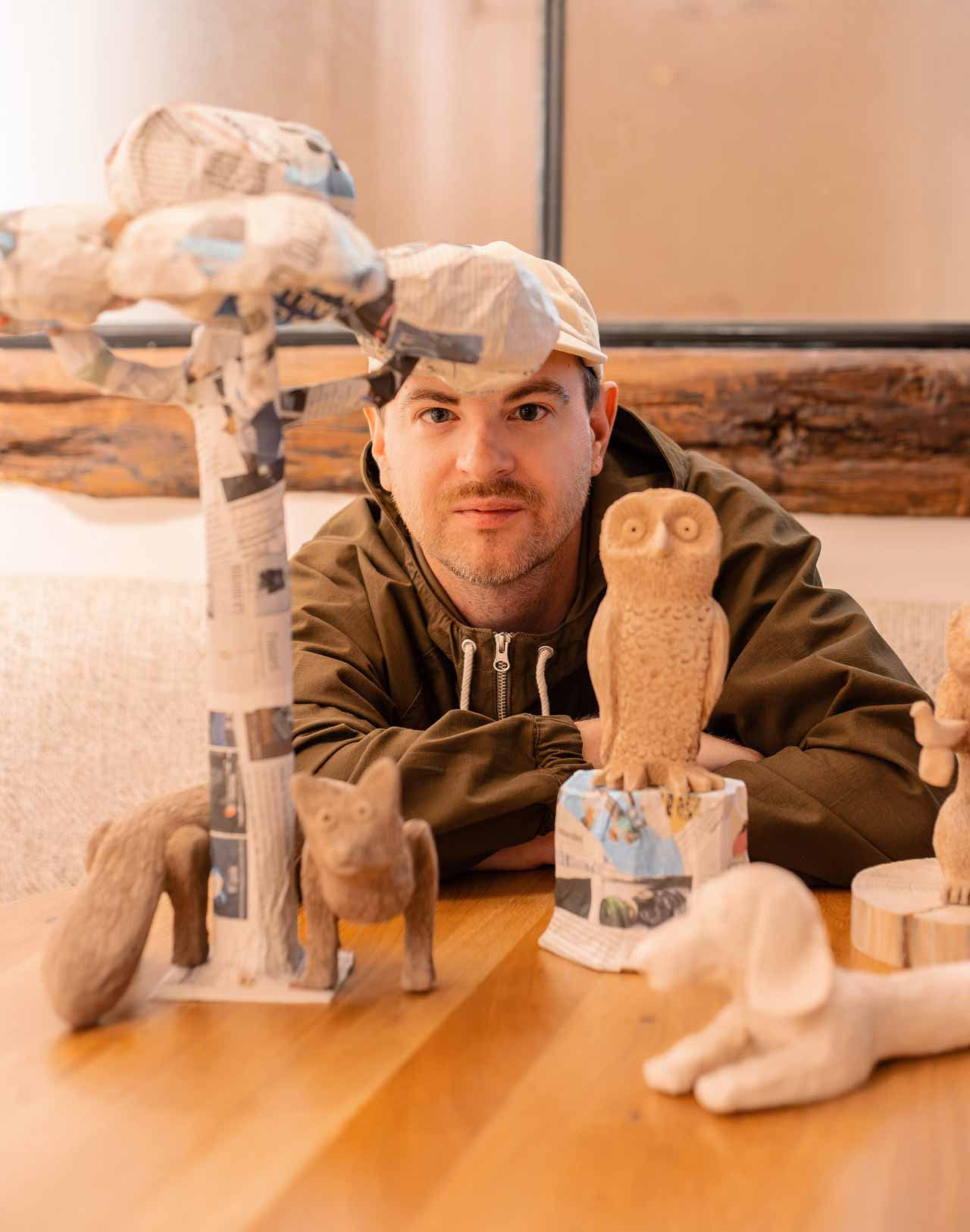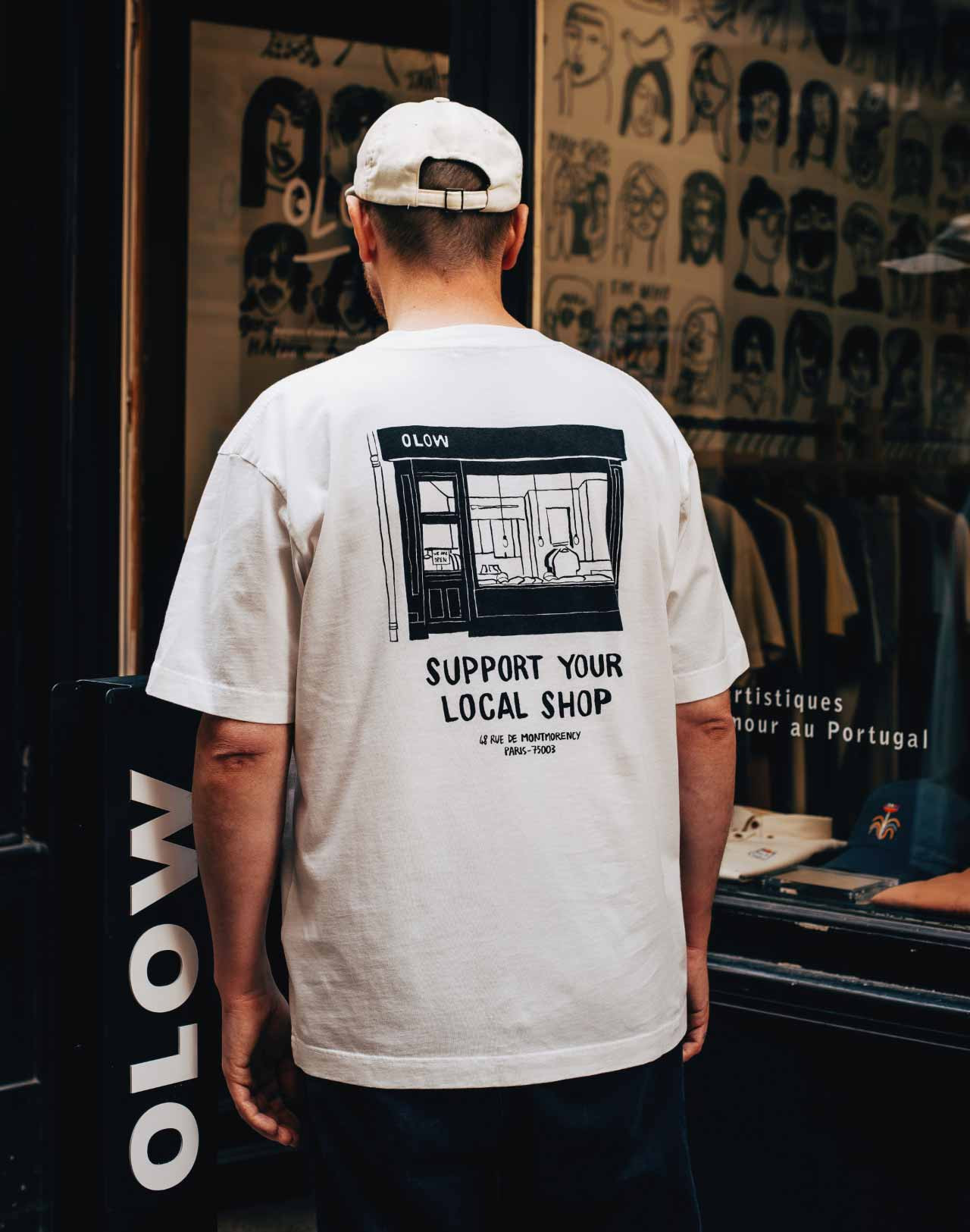Xavier Staal, a fully fledged Berliner
After hesitating between a former public toilet now converted into a burger restaurant and Le Transit, a Spanish restaurant, our choice was focused on the latter and their typical tortillas … Once the half pint of traditional beer was served, we dove right in. Lulled by the resonance of the adjacent Berlin conversations …
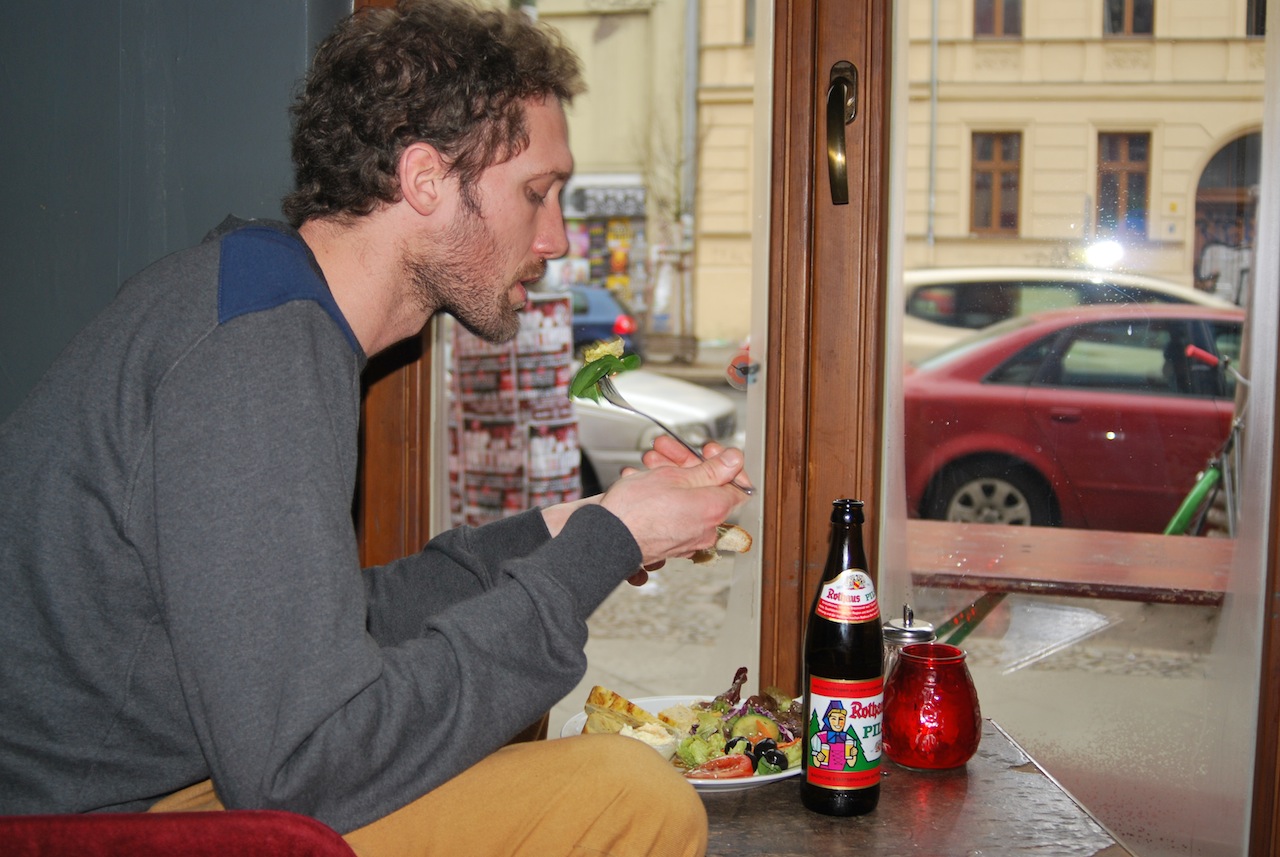
You originally came to Germany to study and then after decided to stay… why?
I really wanted to study abroad. To do something new. To integrate myself into another culture and change my routine. It was a small challenge to stay and not go back to what I already knew.
Lucas Beaufort introduced you to the OLOW brand, what made you want to launch into this crazy adventure?
Lucas Beaufort and I met at Bright a few seasons ago. We knew each other through various other brands I’m working with. So for Olow in Germany he thought of me straight away. I liked the well dressed side of the brand and it meant moving up a level in the textil industry. I have always been attracted by discovery, novelty and challenge.Also, when Mathieu tells you the story of Olow, it’s full of sincerity and authenticity
How does the German textile market compare to French brands?
German people are relatively open to foreign brands. They respect France and find the work of our brands very good. One can feel a kind of Franco-German brotherhood. A genuine respect for each other’s work. And that’s why when you present Olow to someone in Germany, you say it’s French, and immediately they have this kind of love for France and everything that comes from there. If today we don’t find a French brand in Germany, it’s due to its recent arrival on the market. What is interesting with Olow is its desire of international development.
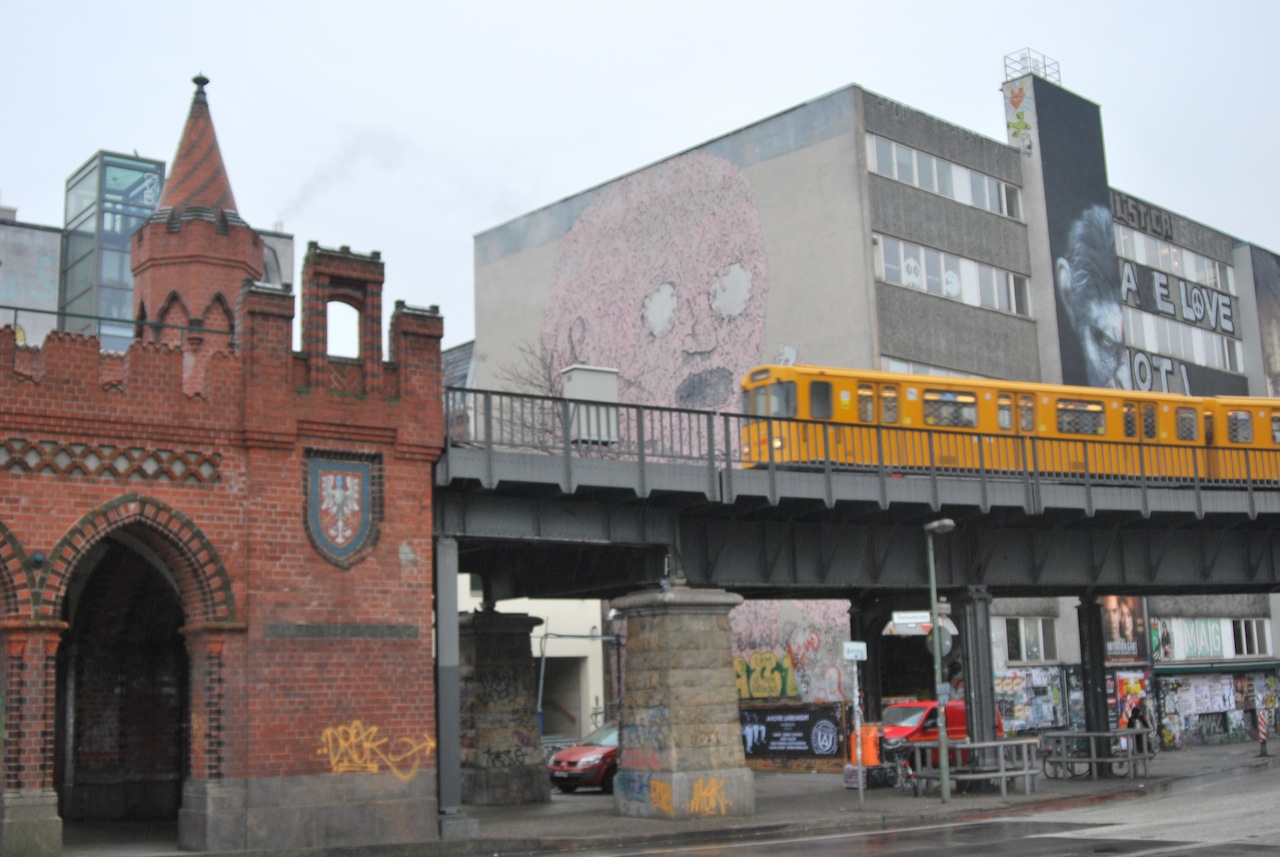
Your workshop which is also your showroom, is built entirely from reclaimed wood! Where does this passion for DIY come from?
I have always liked manual labor and in this commercial business, sometimes you need a change. DIY helps me to think, to reflect, and create … My showroom is below my house, in a small backyard, in the district of Friedrichshain. The workshop was an old horse barn. It’s all in stone and we have completely renovated the interior. I originally wanted it to do DIY in as you can always find things in Berlin’s streets. You just have to take them home, do a little sanding, and with a coat of paint, presto you have homemade furniture! You can even resell it! So my studio is multifunctional: offices, showroom and stock! It is a lively space. People can go there for a drink. We do screen printing and a lot of other things.
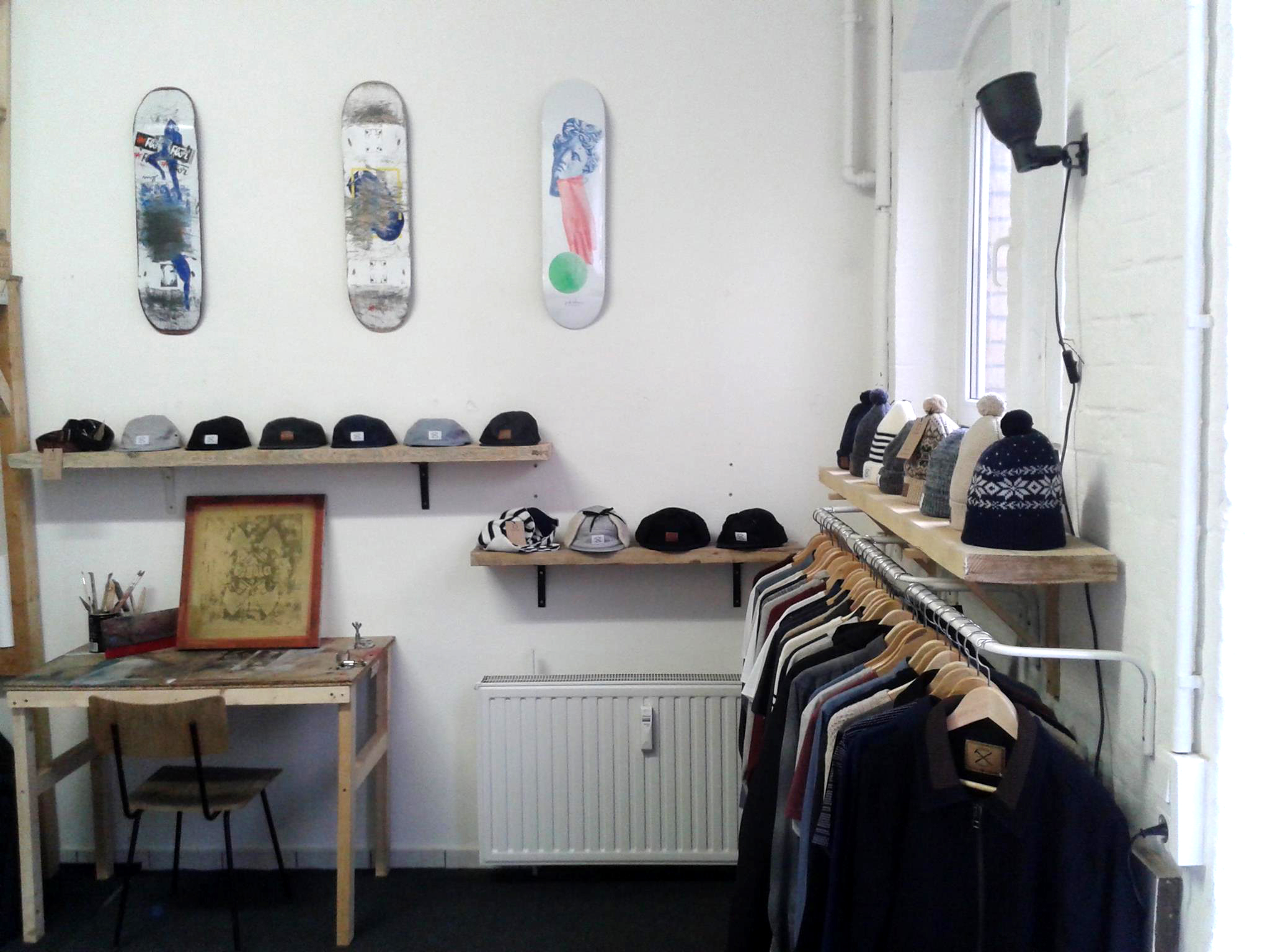
Can you tell me more about the FLVR project?
When I was a student and started skateboarding I wanted to work in connection with the skateboarding world. I’ve always loved the board graphics, not necessarily what is to do with the brand. So the idea of FLVR was to make boards that we like visually. To highlight the artistic and graphic side more than the logo or brand in itself. Today there are a lot of things that are out there! You buy the brand and not actually the work that has been done behind it… so we want to highlight this. We collaborate with artists, and it is the artists who are part of the team brand. They highlight the work by making series of timeless boards … We have a sort of collection system, for example we release them when we want. We would like to develop T-shirts as we like textiles and dressing well. But we would also like to develop other products too. For example the next collaboration is with a New York artist with whom we will release a comic. The purpose of FLVR is to become a creative studio where we can find different products to address a wider range of potential customers. A skateboarder is not just restricted to skateboarding and we are open to many things in our daily lives. This kind of project works quite well in France, and also in Italy and Germany.
Where is your little piece of Berlin heaven where you like to go and skate?
So just down from my house, in Warschauerstrasse, there was an abandoned spot, quite ghetto, where skateboarders could build their own concrete skate module. This space is getting bigger and bigger by the day. There are a lot of spots in Berlin which are great to skate at! That’s why I came to Berlin for the artistic, street and skateboarding side of things. I can’t see myself skating in a skate park, I’m much more comfortable on the street. The street is where I learned how to skateboard, it’s where you can express yourself and be creative! A former airport was opened to the public and they have built a street plaza by recycling the entire facade of the East Germany’s parliament during the Cold War. They have taken granite blocks and made a plaza dedicated to skateboarding. It is more of a skateable sculpture than an actual skatepark. It is situated in Tempelhof in the south of Berlin. Here, you can go and even create your garden from pallets and recuperated materials. You can go there by bike, crossing the Landwehr canal, then after skateboarding you can chill and drink beer! Barbecues are also allowed! It’s the perfect life!
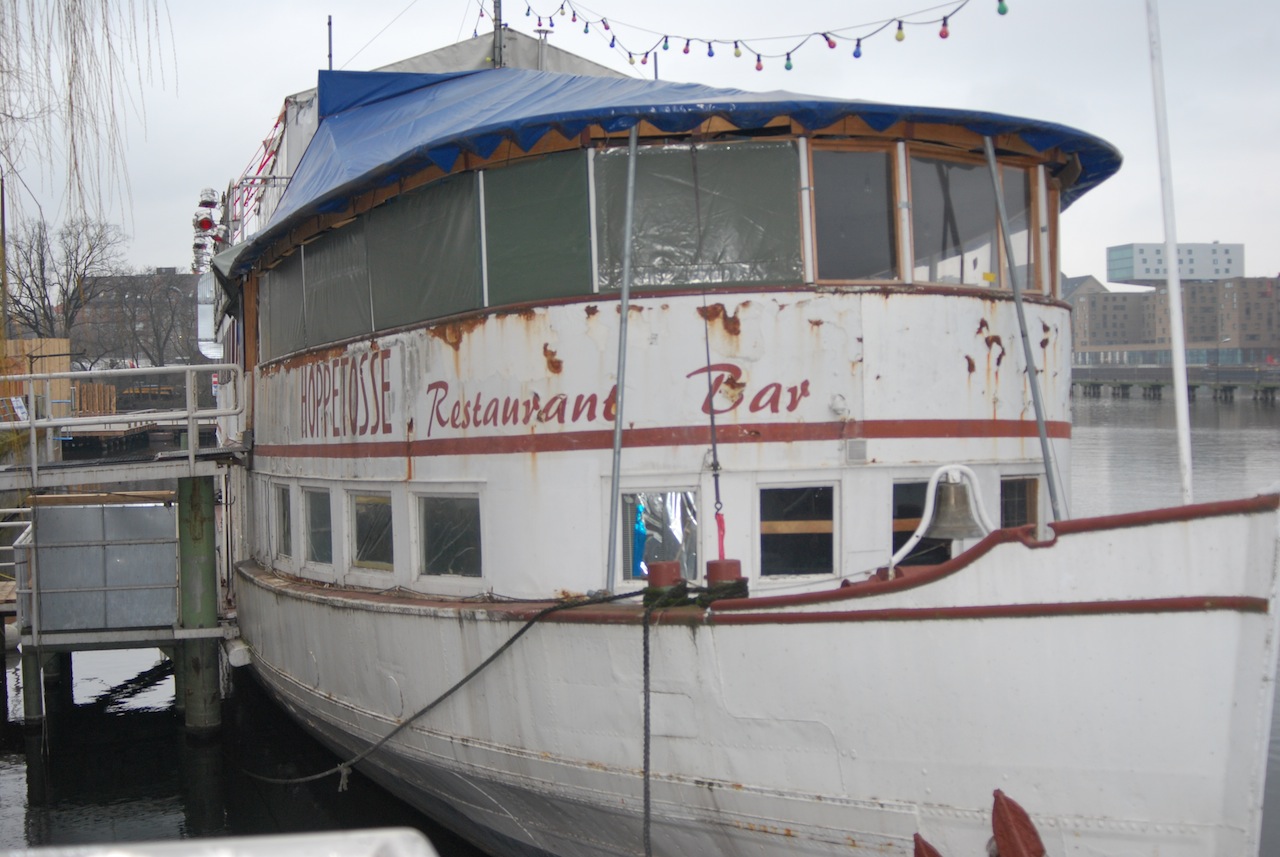
On which side of Berlin do most of the artists hang out? Who was the last one to have really made a mark on you?
The thing about Berlin is that it’s a city in constant evolution. Since 1989 the neighborhoods have thrived and artists have moved from one neighborhood to another, to the least popularized and most affordable as possible. It’s been a while since they have moved south of Berlin to Neukölln. Quite a few bars have opened there. Today we can once again see a new transition period as the area is fast becoming more and more expensive. I think that we only know 30% of Berlin City, there is still much to do … Even if it changes there is a lot of potential.
Failing to be a Berliner, the last artist to have made their mark on me was the New York artist called Jake Terrell, and our next FLVR collaborator. We felt a real affinity for his line drawing and the character he expresses.
What French thing do you miss the most in Germany?
It has been 5 years since this French life has been nesting in Berlin. We have so many French things here. Maybe a good bookshops… with lots of French books!
What advice would you give to an expatriate coming to settle in Berlin?
Berlin is a pretty tough city to live in. It is a city that can eat you up quickly … A city that is poor where you must manage to find your way. You must find a job, a flat and it’s not that easy. We shouldn’t think that Berlin is all great, beautiful and pink, as this is a false image of the city … It is a city under construction in which it is hard to set up and construct something constant in. Many people that come here only stay 6 months to a year and then leave because they can manage this. It is very important to become accustomed to the German mentality and formalities. Sometimes we have to put our ego aside to understand Berlin … Most people here hate the French tourists passing through, who only to come to party and think that Berlin is super cool. The clubs are not the illusion of the good easy life here.
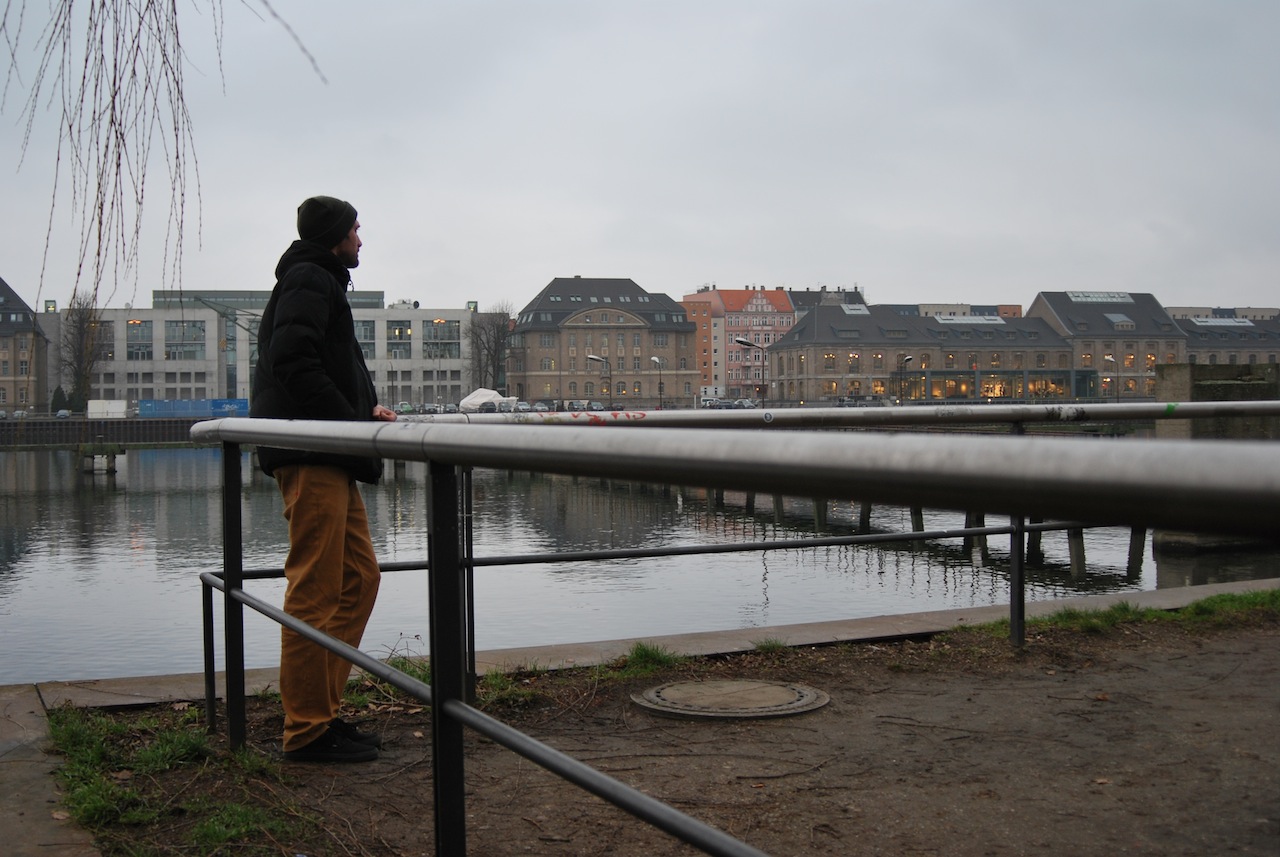
Thanks to Xavier Staal
More about Xavier Staal and FLVR project here:
– PL –
